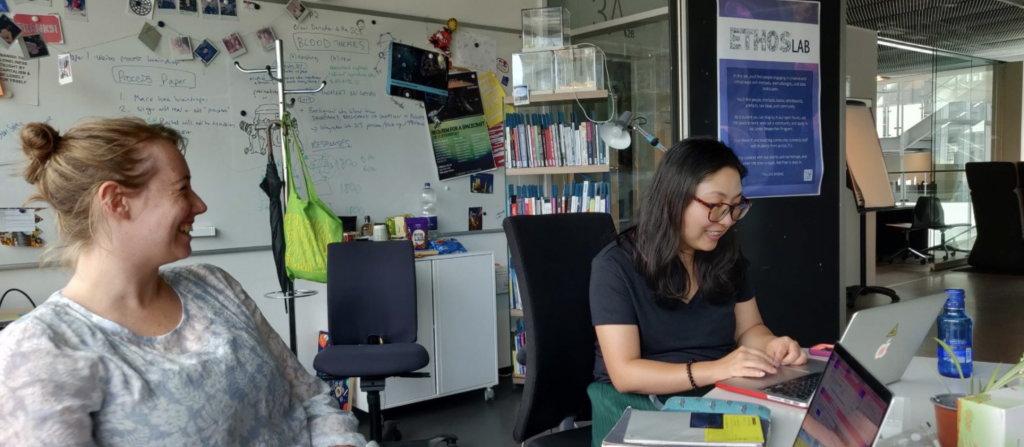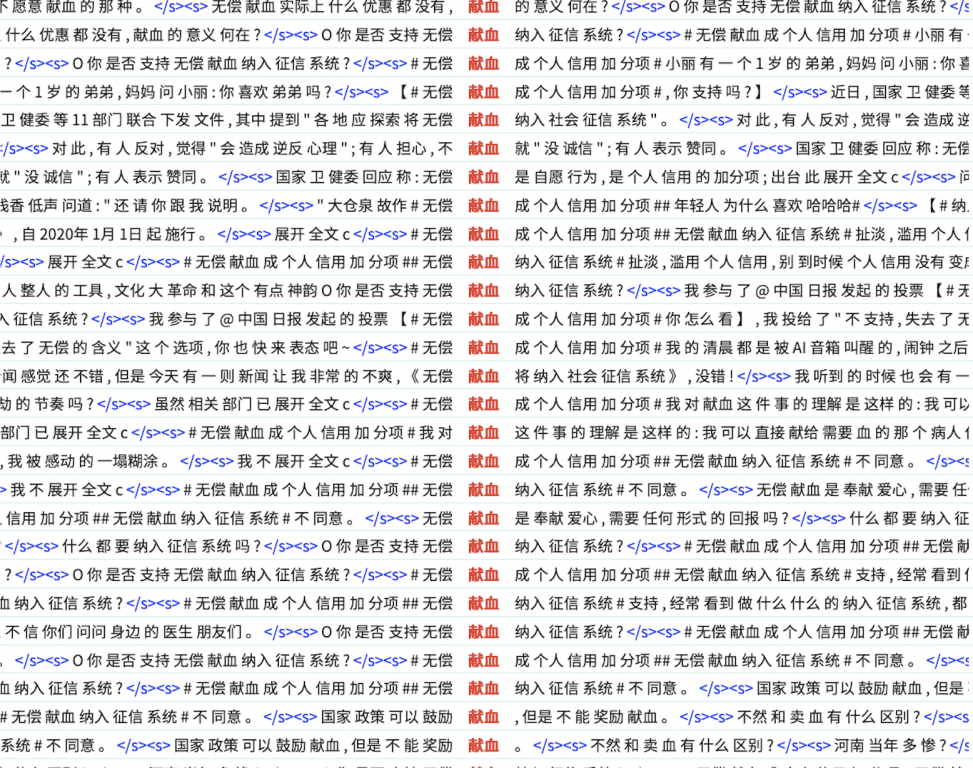The Moving Data-Moving People project began in July 2020, in the middle of the COVID-19 Pandemic. While much was unknown – particularly about the possibilities for fieldwork – we knew we wanted to get started on our research. We put out a call for Research Assistants.
In the Autumn of 2020, we started working with Hailing Zhao and Qiuyu Jiang, Research Assistants to support us as we began. Our plan was initially to scope existing research, build up a better understanding of the variety of implementations of the SCS with a view to including our project partners in site selection and initial explorations of access, and develop some case studies focused on the relevance of and impacts of the SCS for people on the move.
Researching Together, Remotely
All of our meetings took place online, with weekly Zoom sessions characterizing our Wednesday mornings. Hailing and Qiuyu’s enthusiasm for the project shaped these morning meetings. In the first phase of their research we asked them to explore the “pilot cities” social credit systems, documenting the way that the SCS is translated locally into different local initiatives and programs. Under a range of different kinds of branding, SCS projects were often actively connected with prior and existing city priorities. Through project discussions, we explored where available, the kinds of scoring systems being developed, and looked specifically at the way the SCS projects were integrated with local hukou systems. A hukou, granting residence and benefits thereof, would impact most “people on the move” for work.
In terms of Moving Data, we are interested in exploring visions for interoperability and data sharing between cities and provinces, and early reviews showed that such sharing is beginning on some schemes between cities.
Project integrated into teaching
In the Spring, project reading and cases were incorporated in to teaching at the IT University of Copenhagen, where students on the Digital Innovation and Management course were led in their study of the Digital State by Rachel and Qiuyu. In the theme “Global Comparisons”, students learned about the SCS alongside other large scale digital state infrastructures – from the European smart border to the Teaching news. In the theme “Global Comparisons”, students learned about the SCS alongside other large scale digital state infrastructures – from the European Smart Border to Aadhaar, the Indian Biometric Identity system. We invited Adam Knight, a PhD student at the University of Leiden, to give a guest lecture on his research into the workings of the SCS in Rongcheng.
Writing together
Later in Spring 2021, our case studies became outline papers: at the Association of Asian Studies Jesper and Qiuyu presented the draft paper “From Informal Blacklist to Social Credit Apps: Trusting Chinese Domestic Workers in the Digital Era”, a paper now submitted for The Journal of Current Chinese Affairs. Rachel and Hailing worked together to develop an analysis of Shenzhen’s data workers, who operate door-to-door to manage people on the move. This paper has been submitted to the East Asian Science Technology and Society Journal. The papers develop key themes of labour, trust, technology and mediation within the project. Descriptions of work in progress are available on our Work in Progress page.
Digital Ethnography and Social Media Analysis
Alongside our writing, in collaboration with the ETHOS Lab, we set up a pair of data collection exercises on Weibo, following up on more controversial cases explored in the initial phase of research. A short paper on ethnography and digital methods will be published on the Lab’s website, as the exercise was both practically and infrastructurally interesting. Since 2016, the requirements for requesting API access have been tightened, requiring any new user to verify their ID. The process of verification, and getting the app key and access token took some time, but once acquired, it was possible to write a short Python script to explore and collect data relevant to the topics identified in earlier rounds. Combining this data with other sources like policies and newspapers, a paper on the social credit system and blood donation is under development. For more from the Lab, see here.

Lab work discussing SCS data
In Moving Data – Moving People, we are interested in the overall question of how trust is discussed and configured in the SCS, for people on the move. Throughout this year, we have been seeking sites to answer this question by asking a more basic one: how and when does SCS become relevant to the lives of people on the move? We have then been considering sites and perspectives for ethnographic research that will open the doors to new relations being formed. While cities have featured heavily in our initial scoping, we remain very curious about and committed to understanding what the SCS looks like in and from rural China.
Networks and Outreach
During 2020-21, the team has been Participating in Digital China Studies network, leading events for the Rule through Categorization Network, and been invited to a roundtable at the launch of the new European Anthropological Association’s network on surveillance.

Leave a Reply